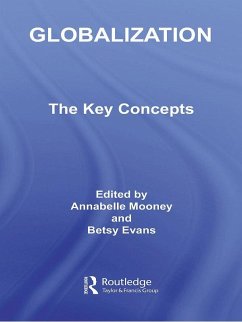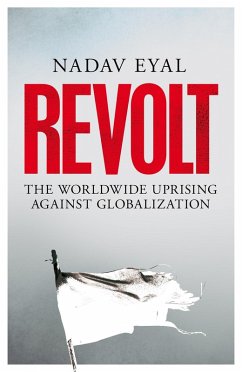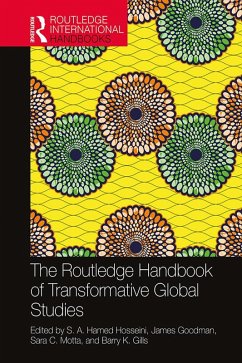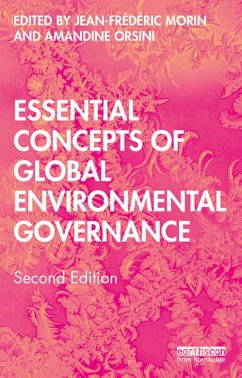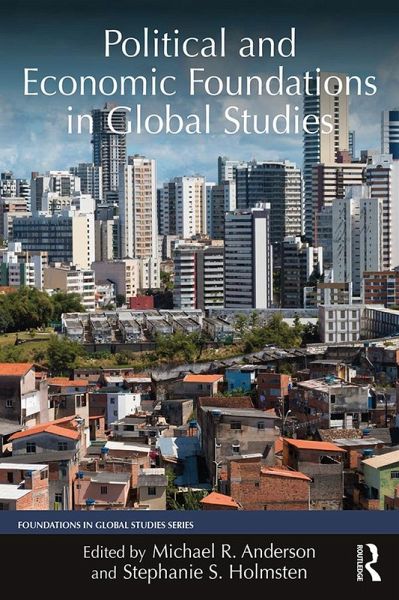
Political and Economic Foundations in Global Studies (eBook, ePUB)
Versandkostenfrei!
Sofort per Download lieferbar
41,95 €
inkl. MwSt.
Weitere Ausgaben:

PAYBACK Punkte
21 °P sammeln!
Political and Economic Foundations in Global Studies provides an innovative introductory examination of the global forces shaping the world today, seen through political and economic lenses.Along with its companion, Social and Cultural Foundations in Global Studies, the book exposes students to the historical contours of, and the key concepts and processes that underlie, the interconnections among individuals, societies, organizations, and governments. As in the rest of Routledge's Global Studies series, the Foundations books employ a two-part strategy: conceptual underpinnings explored in the...
Political and Economic Foundations in Global Studies provides an innovative introductory examination of the global forces shaping the world today, seen through political and economic lenses.
Along with its companion, Social and Cultural Foundations in Global Studies, the book exposes students to the historical contours of, and the key concepts and processes that underlie, the interconnections among individuals, societies, organizations, and governments. As in the rest of Routledge's Global Studies series, the Foundations books employ a two-part strategy: conceptual underpinnings explored in the first part are enlivened by case studies in the second. Special features magnify the utility of the text:
. Text boxes are employed to expand and emphasize specific material: they are used to open up the coverage to related topics or to call attention to especially critical material, such as historical milestones or key vocabulary.
. Resource boxes offer links that point readers to sources-mostly online-on the topics discussed and establish a rich archive of additional material for readers to draw on.
. At the same time, back-of-chapter References and Further Research lists help students to trace the material used by authors or to follow more general leads relating to the topics covered in the chapters.
. Images highlight specific details of the case studies, helping to bring the subjects alive.
Along with its companion, Social and Cultural Foundations in Global Studies, the book exposes students to the historical contours of, and the key concepts and processes that underlie, the interconnections among individuals, societies, organizations, and governments. As in the rest of Routledge's Global Studies series, the Foundations books employ a two-part strategy: conceptual underpinnings explored in the first part are enlivened by case studies in the second. Special features magnify the utility of the text:
. Text boxes are employed to expand and emphasize specific material: they are used to open up the coverage to related topics or to call attention to especially critical material, such as historical milestones or key vocabulary.
. Resource boxes offer links that point readers to sources-mostly online-on the topics discussed and establish a rich archive of additional material for readers to draw on.
. At the same time, back-of-chapter References and Further Research lists help students to trace the material used by authors or to follow more general leads relating to the topics covered in the chapters.
. Images highlight specific details of the case studies, helping to bring the subjects alive.
Dieser Download kann aus rechtlichen Gründen nur mit Rechnungsadresse in A, B, BG, CY, CZ, D, DK, EW, E, FIN, F, GR, HR, H, IRL, I, LT, L, LR, M, NL, PL, P, R, S, SLO, SK ausgeliefert werden.




